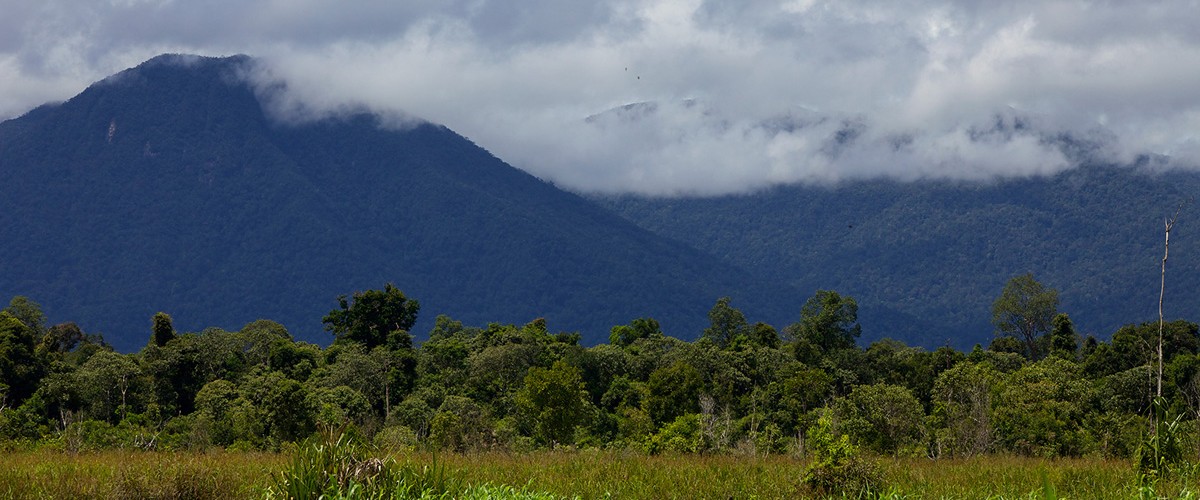By Tori Bakley, GPOCP Research Assistant
As a research assistant for GPOCP, 2019 was a full-immersion into research, conservation, and cultural exploration. I did not visit any of my family or friends during my year with the project, but I did spend every day with incredible new friends in an incredible new place that quickly felt like home. Even though my primary activity was either data or sample collection and processing, I also became well-versed in speaking Bahasa Indonesian, identifying individual orangutans by facial features and baking marvelous desserts in a camp oven.

While I did work on all aspects of the project, I was focused on orangutan mother and offspring feeding interactions. Luckily for me, most of the orangutans we encountered were active mothers. We had several new babies born this year and saw some of the younger orangutans achieve big milestones, such as travelling alone or making their own nests. Having a baby or practicing nest building are remarkable developments in an orangutan’s life, but possibly more notable is how they accomplish them in the first place. In a habitat that does not provide much sustenance at surface level, orangutans have adapted to make the most out of it.
The solitary lifestyle of wild orangutans leads to infrequent mating events. Seemingly rarer is the birth of a baby orangutan. It takes over a decade for a female to reach maturity, and once she has a baby, that baby could nurse from her for around eight years. That means the mother’s diet must provide energy for herself and her nursing offspring, which could be challenging when high calorie foods, such as fruits, are scarce and irregularly available. Therefore, fallback foods, primarily bark and leaves, become a crucial source of energy and nutrients.

So, we ask, do immature orangutans have the same digestive abilities as their mothers? How do they compare? If an offspring does not have the digestive system to process difficult foods until it is older, then having mom’s milk on the menu would be a literal lifesaver – providing food security and reducing the chances of nutrient-deficiencies during important years of development. Fecal samples can be examined to see how well food is processed, how much energy was absorbed and how much nursing takes place when samples are collected from mother-offspring dyads on the same day. Urine analyses can reveal how the mother’s body is using energy, and if, for example, it is under stress in a fruitless forest.
I was most surprised by finding that wild, young infant defecations are near-impossible to collect. Infants are simply less-predictable and create tiny, harder to find samples than their moms. With a mostly milk diet at first, they defecate infrequently. Thus, we have yet to collect a fecal sample from Winnie, the newest addition to Cabang Panti. As for older offspring, we were able to successfully collect samples that will be processed in university laboratories in the future. They will provide vital insight into the digestive abilities of immature orangutans.
While this project did not begin or end with me, I have thoroughly enjoyed studying these concepts and seeing these behaviors first-hand. Every time Walimah shredded a piece of bark from a trunk the way we might pull apart a cheese stick, I was amazed at the strength in her teeth, the knowledge in her mind, and the ecological history that brought it all together for her baby and I to learn from in unison. I will miss every aspect of this project, but I am excited to apply all that I have learned from this experience to those in the future. I am endlessly grateful to everyone who was a part of the Cabang Panti family this year, as, even if just for a moment, we shared an experience like no other.







